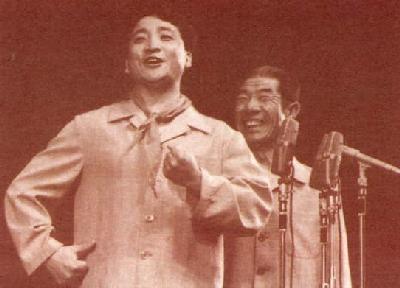| Art Q&A > Quyi |
|
|
Xiangsheng Master: Jiang Kun
Taking Photos, which he wrote himself, reflects the ultra-"left" atmosphere during the Cultural Revolution. It established his position in the field of Xiangsheng. Since the 1980s, he has performed a number of cross-talk comic dialogues with Li and other partners, including Poems, Songs and Love, The Story of the Nose and Watching Television. His most popular items are those written by Xiangsheng writer Liang Zuo and performed together with Tangjiezhong. They are Reverie in the Jaws of Death, Front Page News and An Adventure in an Elevator. These vividly portrayed the state of mind of ordinary people in the early period of reform and opening to the outside world. These items are called Xiangsheng which reflect social psychology. As the items compiled and performed by Jiang Kun mainly deal with the joys, contradictions, aspirations and helplessness of people who find it hard to keep abreast of the times, so it is very hard to classify his items by the usual rules in the categories of satire and praise.
|
||||||
All rights reserved. Reproduction of text for non-commercial purposes is permitted provided that both the source and author are acknowledged and a notifying email is sent to us. |
||||||
 |

